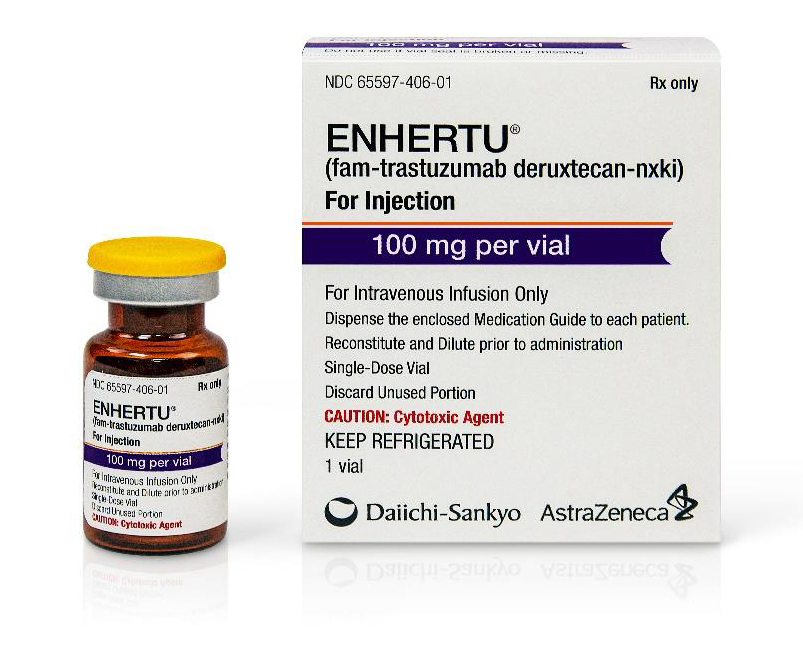AZ/Daiichi's Enhertu gains second 'breakthrough' tag in space of a week

The FDA has said AstraZeneca and Daiichi Sankyo’s Enhertu could be a breakthrough in a potential new lung cancer niche, the second time in the space of a week that the drug has received the designation.
The companies think Enhertu (trastuzumab deruxtecan) has blockbuster potential, with its ability to lock on to cancer cells expressing the HER2 mutation and deliver a lethal tumour-killing payload while ignoring healthy cells.
Enhertu is already approved in HER-2 positive unresectable or metastatic breast cancer after two or more HER-2 targeting drugs have failed, such as Roche’s Herceptin (trastuzumab) and Perjeta (pertuzumab).
But there is more to come from the drug, which is being tested in six trials that could lead to new indications in various HER-2 driven cancers, including breast, gastric, and lung cancers.
The FDA has granted Breakthrough Therapy Designation for Enhertu in patients with metastatic non-small cell lung cancer whose tumours have a HER-2 mutation with disease progression on or after a platinum-based therapy.
This the third Breakthrough Therapy Designation for Enhertu – last week it received the tag in patients with HER-2-positive unresectable or metastatic gastric or gastroesophageal junction adenocarcinoma who have received two or more prior regimens including Herceptin, as well as in the advanced breast cancer indication prior to approval in December.
Breakthrough Therapy Designation entitles AZ and Daiichi to further help during the clinical development process to speed things up, and a faster six-month review if trial data stacks up.
The designation is set aside for drugs that could treat a serious condition for which there is significant unmet need, where early clinical results suggest a substantial improvement over available drugs.
Around 2-4% of patients with NSCLC have a HER-2 mutation, which drives the spread of the cancer and is associated with a poorer prognosis.
The FDA granted BTD based on data from the ongoing Phase II DESTINY-Lung01 trial currently testing Enhertu and data from the phase I trial published in Cancer Discovery.
An interim analysis will be presented at the American Society of Clinical Oncology (ASCO) conference at the end of the month, which is being held virtually because of the COVID-19 pandemic.
There are also further trials under way in combination with other anti-cancer treatments in progress including immunotherapy.













